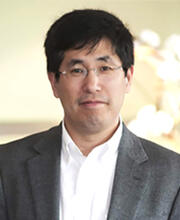Zhigang He, Ph.D., B.M.
Boston Children's Hospital
Dana-Farber Cancer Institute

The He lab seeks to restore lost function after spinal cord injury or other types of CNS injuries: one of the major challenges of contemporary neuroscience.
Developing neural repair strategies to restore functions after central nervous system (CNS) injury such as spinal cord injury is still an unmet challenge. To achieve this goal, our research is taking different approaches: promoting axon regeneration and enhancing neuronal plasticity. In order to repair the damaged axons, injured neurons first need to recover the capacity for intrinsic growth, initiating regenerative growth. Sufficient numbers of regenerating axons then have to cross the lesion site and remake functional synapses with neurons in the targets.
Our studies have led to the development of novel and effective genetic methods (deletion of PTEN and/or SOCS3) for re-activating neuronal regenerative capacity and thereby allowing for robust regenerative growth after injury, representing a major achievement in the first step of neural repair. We are now poised to begin to tackle the remaining major challenges: Could be stem cell-strategies used to build up bridges for promoting regenerating axons to cross the lesion? How regenerating axons find the correct pathways to reach their functional targets? Do the regenerating axons are able to functional synapses? To what extents functional recovery could be restored by such regeneration-based approaches? Could other strategies, such as task-specific training, enhance functional recovery? We expect that answering these questions will provide important insights into developing regenerative strategies for treating CNS injury and other neurological diseases.
Biosketch
Zhigang He is the director of the Boston Children’s Hospital Viral Core, which provides technological resources to academic investigators interested in the development and use of viral based vectors. Dr He received his Ph.D. from the University of Toronto and was a postdoctoral fellow with Marc Tessier-Lavigne at the University of California, San Francisco. He is a Klingenstein Fellow in Neuroscience, a John Merck Scholar, and a McKnight Scholar. In 2019 Dr. He received the Reeve-Irvine Research Medal.
